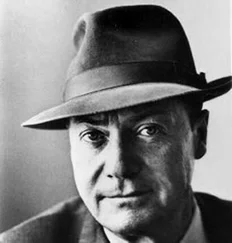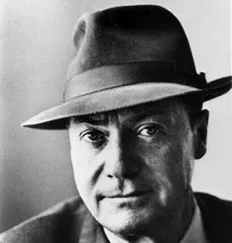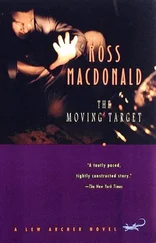The fire bent around it like the fingers of a hand, squeezing smoke out of the windows and then flame. We got back into our cars and turned downhill. It was my second evacuation of the day, and it made me feel slightly paranoid until I thought of the reason. The people I was getting involved with could afford to live in the open outside the city, right up against nature.
There was only one good thing about the fire. It made people talk about the things that really concerned them. I asked Mrs. Armistead how long she had lived in the house.
“Just four years. Roger and I came up here from Newport and built it. It was part of an attempt to hold our marriage together, on the analogy of having a child.”
“Do you have any children?”
“Only each other,” she answered in a wry voice. Then she added: “I wish I had a daughter. I wish even more that my husband had a daughter.”
“On account of the blond girl?”
She turned toward me suddenly, with a kind of suppressed violence. “Just what do you know about the girl?”
“Very little. I’ve only seen her once, at a distance.”
“I’ve never seen her at all,” the woman said. “She sounds like a kook. But it’s hard to tell about young people nowadays.”
“It always was.”
She was still watching my face. “You said that you’re a detective. Just what has the girl done?”
“I’m trying to find out.”
“But you didn’t just pick her at random. She must have done something wrong, besides taking the Mercedes. What did she do?”
“Ask Roger.”
“I intend to. But you haven’t explained why you’re so interested in her.”
“She ran away with a six-year-old boy. It amounts to child stealing.” I held back the rest of the story.
“Why would she do a thing like that?” When I failed to answer that question, she asked another: “Is she on acid or some other drug?”
“She may be.”
“I thought so.” She spoke with a kind of bitter satisfaction. “She went off the deep end the night before last, literally. She ended up jumping into the harbor. Jerry had to go in after her.”
“Who’s Jerry?”
“The boy who lives on the boat. Roger calls him his crew, for want of a better word.”
“What do you call him?”
“His last name is Kilpatrick.”
I remembered the book in my pocket, with “ Jerry Kilpatrick” inscribed on the flyleaf in pencil. “Do you know who he is?”
“He’s the son of Brian Kilpatrick, a real estate man in town. As a matter of fact Mr. Kilpatrick sold us that piece of property on the ridge.”
“Is that how your husband met Jerry?”
“I think so. You could ask Roger.”
“When will we be seeing Roger?”
“Quite soon, if he’s at the beach house.”
We were passing through the center of the city. The main street was clogged with traffic, and the sidewalks were crowded. It was strange to see the people going about their business without apparent concern for the fire at the edges of the town. The people were moving more quickly than usual, perhaps, as if their lives had speeded up and might come to an end suddenly.
Following Carlos in the Mercedes, I turned onto Maritime Drive, which took us along the ocean to a row of beach houses curving around a bay. Carlos led me into a parking lot behind the houses, and I drew up beside the Mercedes. “While I’m thinking about it,” Mrs. Armistead said, “I’ll pay you now. How much?”
“A hundred will do it.”
She produced a money clip made of gold in the shape of a dollar-sign and laid a hundred-dollar bill across my upper leg. Then she put a fifty on top of it.
“That’s a tip,” she said.
I took the money, since I needed it for expenses, but I felt vaguely declassed by the transaction, like a repossession man. It gave me a certain sympathy for Roger, even before I met him.
The Armisteads’ beach house was a driftwood-gray building which we entered at the rear on the second-floor level. We moved past an open stairwell into the main room. It was furnished nautically, with brass, a wall barometer, captain’s chairs.
Through the sliding glass windows at the front I could see a youngish man sitting on the balcony. He was sportily clad in a blue T-shirt and a boating cap, but he was watching the people on the beach from a distance, like a spectator sitting in a theatre box.
“Hello, Roger.” The woman’s voice had changed. It was soft and musical, as if she was listening to it, tuning it carefully.
The young man got up and took off his cap, showing neither surprise nor pleasure. “I didn’t expect a visit from you, Fran.”
“The house on Crescent Drive just burned to the ground.”
His face lengthened. “With all my clothes?”
“You can always buy more clothes.” Her voice was partly serious and partly mocking, waiting for him to decide which way he wanted the meeting to go.
He said a little belatedly: “Too bad about the house. You liked it, didn’t you?”
“I liked it as long as you liked it.”
“Are you planning to build again?”
“I don’t know, Roger. What do you think?”
He moved his heavy shoulders, shrugging off the threat of responsibility. “It’s really up to you, isn’t it?”
“Well, I feel like traveling.” She spoke with a kind of fake decisiveness, like a woman improvising. “I may go to Yugoslavia.”
He turned and stared at me, as if he’d just discovered my presence. He was a good-looking man, perhaps ten years younger than his wife, with a strong impatient body. I noticed that his dark hair was thinning. He noticed that I noticed and ruffled it up with his hand.
“This is Mr. Archer,” his wife said. “He’s a detective. He’s looking for the girl you had aboard the sloop.”
“What girl?” But he looked at me with instant dislike and flushed.
“The one who tried to fly too near the sun. Or was it the moon?”
“I wouldn’t know. I had nothing to do with her.”
“Do you know her full name?” I said.
“Susan, I think. Sue Crandall.”
His wife brightened up alarmingly. “I thought you said you had nothing to do with her.”
“I didn’t. I chewed Jerry out for having her aboard, and he told me what her name was. I had to force it out of him.”
“The story came to me differently,” she said. “I heard she spent Thursday night on Ariadne with you. The marina’s rather a public place for that sort of thing, isn’t it?”
He answered somberly: “I don’t mess with young chicks. I spent Thursday night here by myself, drinking. The girl was taken aboard without my knowledge and without my permission.”
“Where’s she from?” I said.
“I don’t really know. Somewhere down south, according to Jerry–”
His wife cut in: “How long have you known her?”
He gave her a hard dull look. “Don’t be a broken record, Fran. I never met the Crandall girl. Ask Jerry Kilpatrick if you don’t believe me. The girl is his little friend.”
“Who gave her the use of the Mercedes, if you didn’t?”
“That was Jerry’s doing, too. I hate to blame it all on him, but that’s the truth. I chewed him out for it.”
“I don’t believe you. You’re not going to have the Mercedes from now on.”
“To hell with you then.”
He moved past her to the open stairs and stamped down to the ground floor. There were sounds like drawers being opened and shut, and closet doors being slammed.
The house was frame, with open rafters and without insulation, so that the angry sounds reverberated through it. Fran Armistead winced at them, as if the violence was being inflicted on her body. She was afraid of her husband, I thought, and probably in love with him.
Читать дальше












